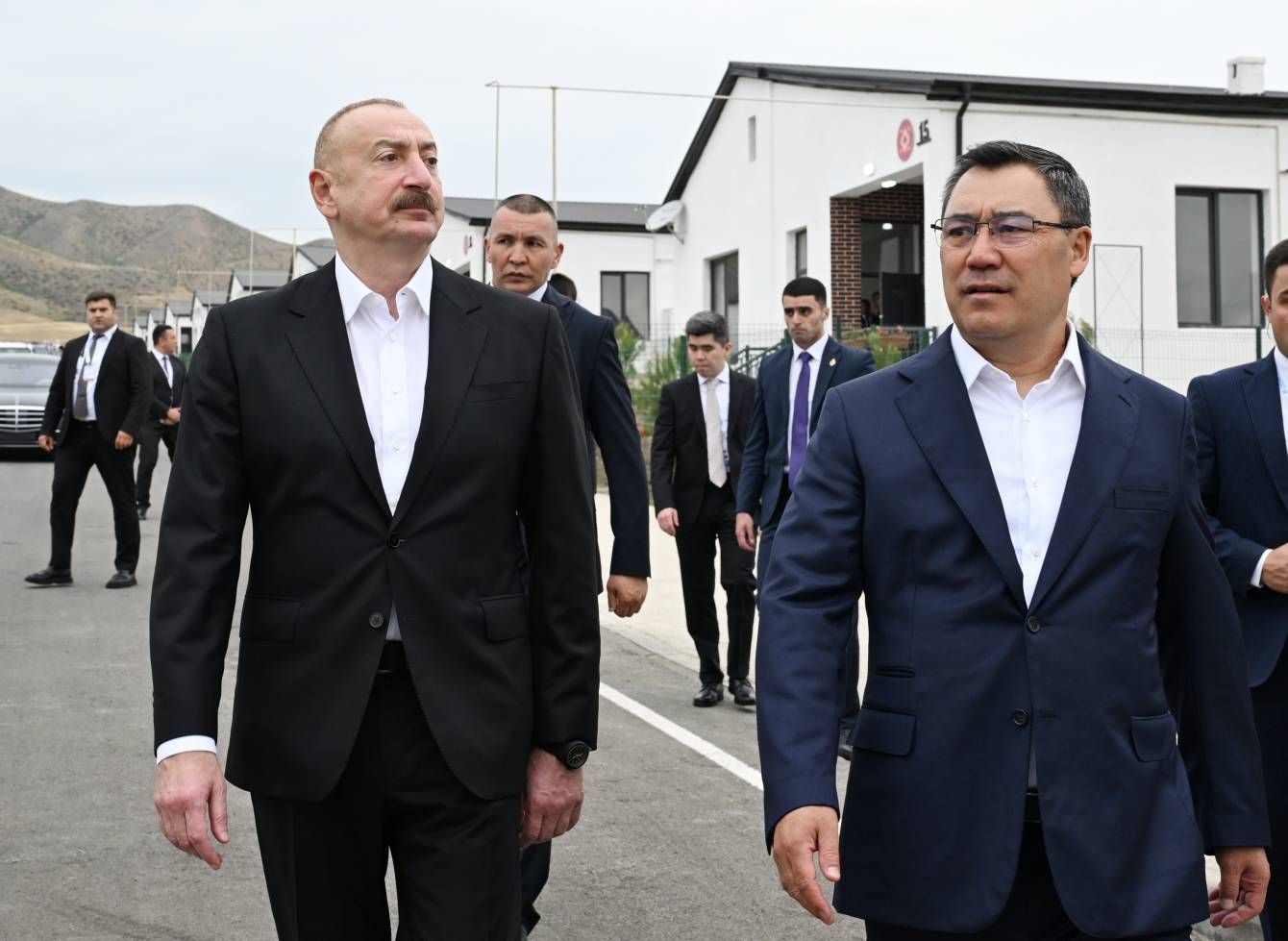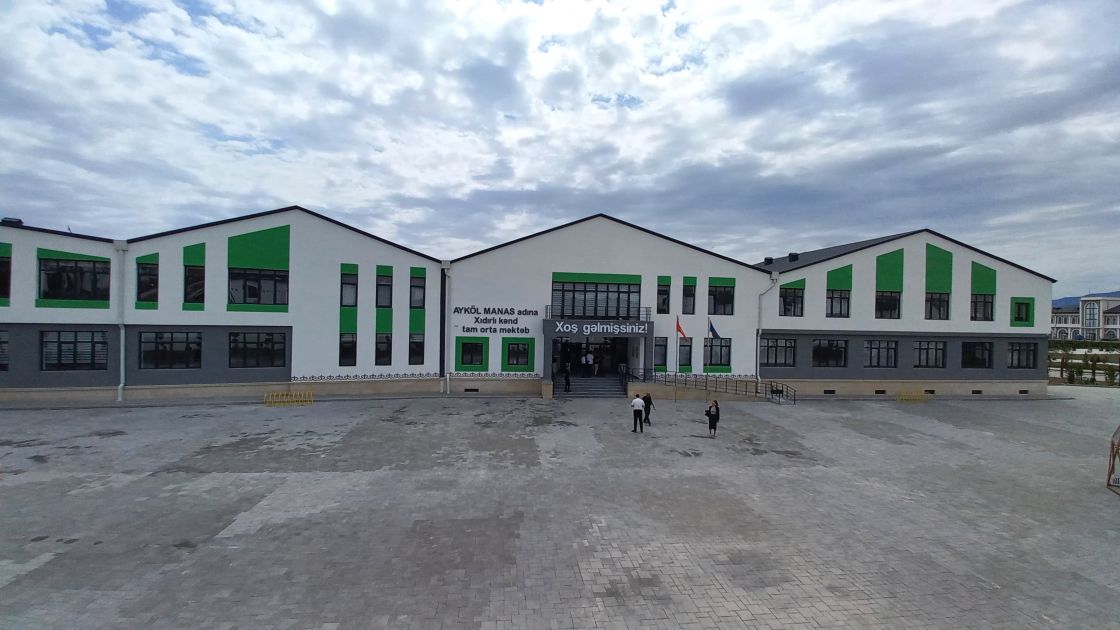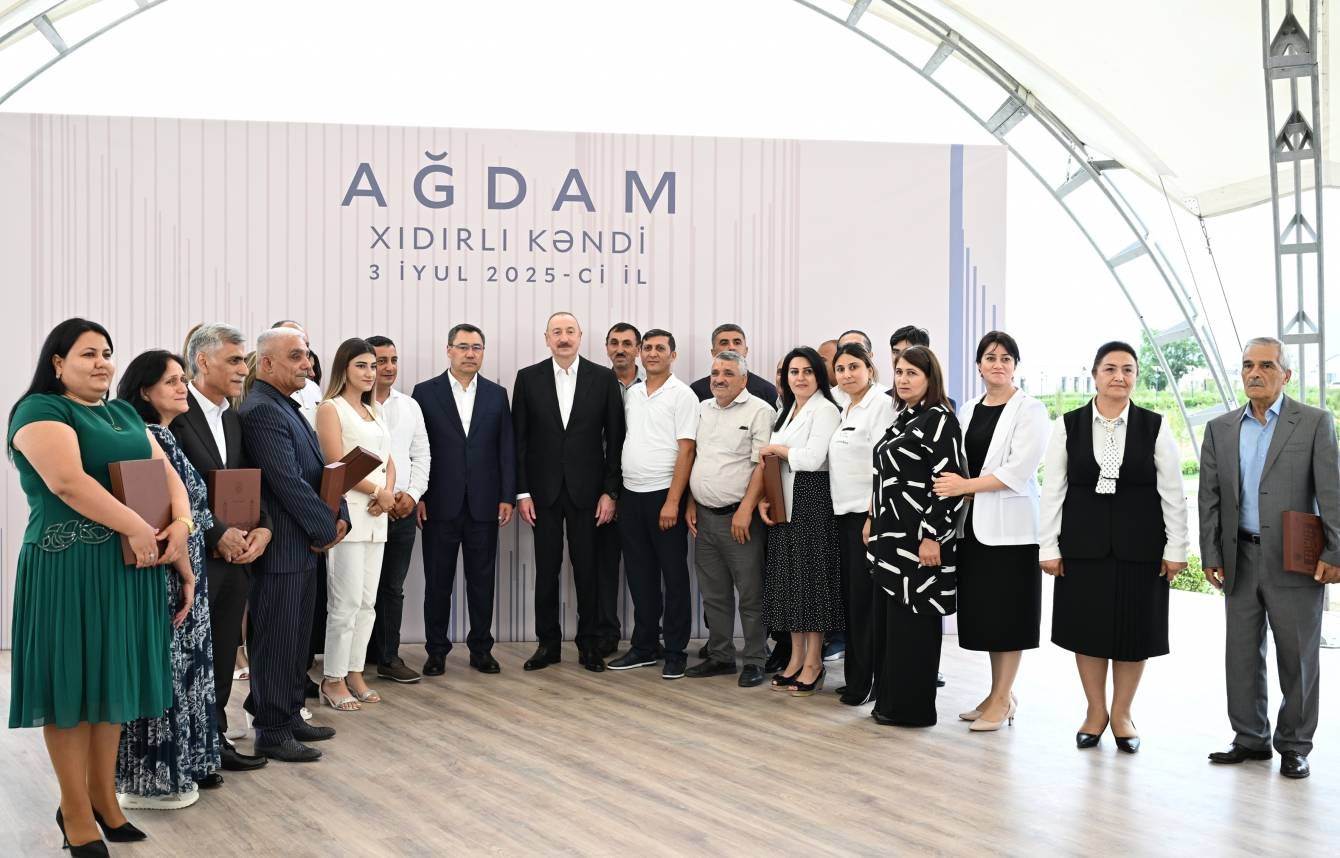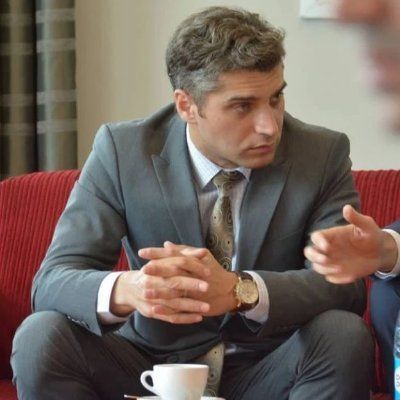President Aliyev’s post-war vision materialises in heart of Aghdam [ANALYSIS]
![President Aliyev’s post-war vision materialises in heart of Aghdam [ANALYSIS]](https://www.azernews.az/media/2025/07/06/f917e7e4d9c080d06c2825f3bb44ee04_7070173.jpg)
In the aftermath of nearly three decades of occupation and destruction, the village of Khidirli in Azerbaijan’s Aghdam district is rapidly transforming into a symbol of national resilience and renewal. Once reduced to rubble by Armenian forces, Khidirli is now witnessing a historic rebirth, one shaped by high-speed reconstruction, strategic investment in human capital, and meaningful international partnerships. At the heart of this transformation stands a joint initiative led by Azerbaijani and Kyrgyz presidents, Ilham Aliyev and Sadyr Japarov, who on 3 July inaugurated a state-of-the-art school and kindergarten in the village. This is not merely a ceremonial gesture; it marks the crystallisation of Azerbaijan’s broader vision for its liberated territories.

What makes this initiative remarkable is not only its pace but its scope. The reconstruction of Khidirli is part of a nationwide effort to breathe life back into war-torn regions, where entire communities were displaced and infrastructure annihilated. Thanks to the decisive victory of the Azerbaijani Army under President Aliyev’s leadership, such areas are now being restored with precision, care, and long-term vision. Khidirli is emblematic of this policy.
The village’s redevelopment is proceeding in structured phases. More than 400 hectares have been allocated for the project, with over 6,000 people expected to resettle there. In the first phase alone, 719 houses have already been constructed, accompanied by a comprehensive network of social and administrative services — from healthcare units and guesthouses for visiting professionals to a multifunctional community centre. Importantly, around 20 per cent of the territory is set aside for green space, reflecting a sustainability-minded approach that is becoming a hallmark of Azerbaijan’s rebuilding process.
Yet it is the educational infrastructure of Khidirli that truly sets the tone for its future. On 3 July, the village welcomed two flagship institutions: the Aykol Manas Secondary School and a nursery-kindergarten, both opened by Presidents Aliyev and Japarov. These are not ordinary public buildings. They represent a strategic bet on the youth of Karabakh, and an investment in the civic, intellectual, and emotional rehabilitation of a traumatised region.

The school spans five blocks and includes 21 classrooms, cutting-edge laboratories, ICT rooms, and even a military preparation room, an indication of the civic and patriotic dimensions of Azerbaijan’s educational priorities. The inclusion of large sports grounds and recreational facilities also reflects a child-centric approach to education, ensuring pupils are nurtured both physically and mentally. The 2.7-hectare site is designed to serve not only students but the wider community, supporting the notion that schools should act as hubs of local regeneration.
Equally impressive is the new nursery-kindergarten, which is already accommodating 120 children. Equipped with music and sports rooms, landscaped play areas, and rooftop solar panels, the facility combines functionality with innovation. It ensures children in liberated areas are not deprived of the early-years education opportunities available in the rest of the country. Moreover, its sustainable design showcases a forward-thinking approach to rebuilding, one that respects environmental responsibility while addressing urgent human needs.
The involvement of President Sadyr Japarov of Kyrgyzstan in these inaugurations underscores the emerging regional solidarity that Azerbaijan is cultivating as it reshapes Karabakh. This partnership serves a dual purpose: reinforcing diplomatic ties within the Turkic world and providing international visibility to Azerbaijan’s post-war reconstruction efforts. Japarov’s presence is more than symbolic — it signals growing regional recognition of Azerbaijan’s leadership in integrating innovation, education, and community development into its recovery narrative.
What distinguishes Azerbaijan’s efforts in Khidirli is the clear rejection of a minimalist or merely functional approach to reconstruction. The government is not simply rebuilding what was lost — it is laying the groundwork for a stronger, smarter, and more self-reliant society. And it is doing so with remarkable speed and discipline. Since the liberation of the region, dozens of infrastructure projects have been launched, and thousands of families are being prepared for a dignified return to their homeland.
In essence, the story of Khidirli reflects the national ethos that has guided Azerbaijan’s post-war recovery: dignity through development. Education, sustainability, and social cohesion are not abstract goals — they are being materialised in bricks, wires, solar panels, and lesson plans. This is the blueprint for peace: not just ceasefire lines, but meaningful reintegration through jobs, schools, homes, and a sense of belonging.
President Ilham Aliyev’s strategy of pairing physical reconstruction with a human development agenda is particularly significant. It ensures that the future of liberated areas is not dictated by past suffering but driven by opportunity. In this context, the Khidirli project is more than just a model for post-conflict recovery in Azerbaijan. It sets a standard for how nations can rebuild after trauma, not just restoring infrastructure, but regenerating hope.

As the second phase of resettlement in Khidirli unfolds and more families return to a village once buried under the scars of war, the success of this project will likely echo far beyond Aghdam. It will serve as proof that with vision, resilience, and international solidarity, even the most devastated regions can be reborn. And that, perhaps, is the most powerful victory of all.
Here we are to serve you with news right now. It does not cost much, but worth your attention.
Choose to support open, independent, quality journalism and subscribe on a monthly basis.
By subscribing to our online newspaper, you can have full digital access to all news, analysis, and much more.
You can also follow AzerNEWS on Twitter @AzerNewsAz or Facebook @AzerNewsNewspaper
Thank you!

